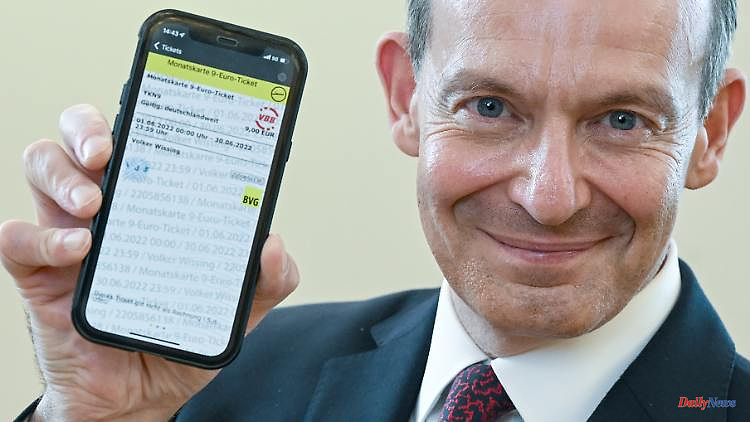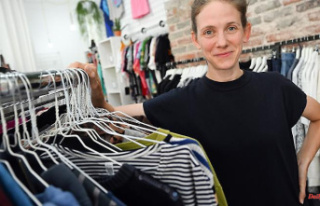Local transport is a state matter, argues the FPD. If the countries want an extension of the 9-euro ticket, they actually have to pay for it themselves. The topic will come up on Friday. Hesse's Minister of Transport Al-Wazir would take money in hand - but also hopes for the federal government.
After the success of the 9-euro ticket for buses and trains, Hesse's green transport minister, Tarek Al-Wazir, called for a nationwide flat-rate offer. Although this would have to cost more because it could be financed, it shouldn't be so expensive that all the advantages are lost, he said in an interview with the private radio station Hit Radio FFH. For example, he could imagine 69 euros a month.
However, there must also be state funding for this amount in order to compensate for losses in the transport associations. "It depends on the money," said the minister. "We have to come to a solution together with the federal and state governments." So far, Federal Finance Minister Christian Lindner has declared that he will not give any euros. "And as long as it stays that way, we won't get a solution," said Al-Wazir. According to the minister, the state of Hesse would be prepared to add one euro from state funds to every additional euro from the federal government to expand the offer.
The Federal Government Commissioner for Rail Transport, Michael Theurer, replied that according to the Basic Law, the federal states are originally responsible for public transport. They received around ten billion euros a year from the federal government for this. "As far as the successor regulation for the 9-euro ticket is concerned, the federal states themselves are required first and foremost - conceptually and financially," said the FDP politician.
The transport ministers of the federal and state governments will talk about the future of local public transport at a special conference on Friday. Bavaria's Transport Minister Christian Bernreiter from the CSU told the "Münchner Merkur": "We pushed through a special transport minister conference on Friday morning."
The CSU politician reiterated his opposition to a successor plan. "A continuation in September would be illusory. And I'll say very clearly: We have other priorities in all 16 federal states," he told the newspaper. The countries could not finance such a special ticket. The 9-euro ticket often only created additional leisure traffic, overcrowded trains even motivated commuters to switch back to the car, he criticized. The minister demanded an additional 1.5 billion euros per year in regionalization funds from the federal government. "A wide range of local public transport is more important to me than a cheap fare. People only switch if local transport is attractive and fast. We urgently need money for this."
Unlike Lindner, Chancellor Olaf Scholz described the 9-euro ticket as a model for success. "It was one of the best ideas we had," said Scholz on Sunday in a public discussion on the occasion of the federal government's open day. The ticket showed "what is possible", but also where there were difficulties and deficits when traveling by train. Scholz did not comment on a possible successor regulation for the 9-euro ticket that expires at the end of August.












